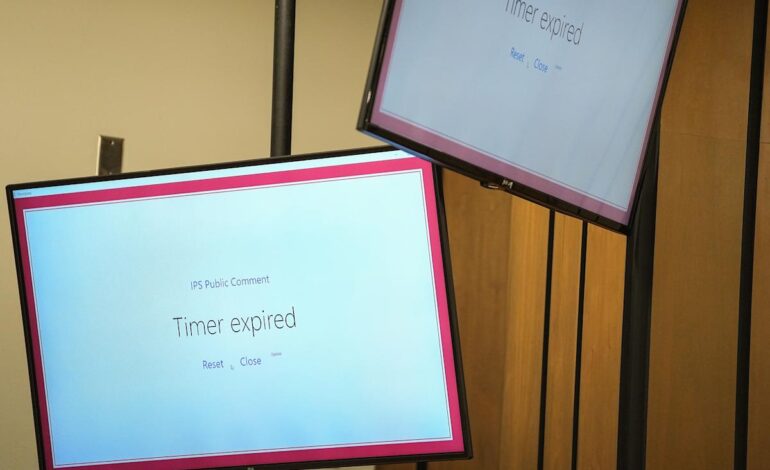
Indianapolis Schools Urged to Slow Down AI Policy Adoption
The Indianapolis Public Schools’ push towards a swift integration of artificial intelligence policies is raising alarms among educators and parents alike. As the district races ahead, community members urge a more measured approach that allows for thorough understanding and consideration of AI’s impact on education.
The Rapid Rollout of AI Policies
The Indianapolis Public Schools district has announced plans to implement artificial intelligence technologies at an accelerated pace. This initiative aims to enhance educational outcomes and streamline administrative tasks. However, stakeholders express concern about the speed of deployment. Many fear that insufficient time for testing and evaluation may lead to unforeseen consequences, potentially impacting both students and educators negatively. The district’s determination in leading technological innovation is acknowledged, yet it underscores the necessity for a comprehensive assessment to ensure all potential effects are thoroughly understood prior to enacting these changes.
Community Reactions and Concerns
Community members, including parents, teachers, and local leaders, are voicing their apprehension regarding the swift adoption of AI in schools. They highlight the lack of transparency and inclusive dialogue in the decision-making process as significant issues. Many stakeholders feel that their input is overlooked, potentially leading to a disconnect between AI policy goals and actual educational needs. The primary concern remains whether adequate measures are in place to safeguard student privacy and data security. To many, the rapid shift threatens to compromise the educational environment, prompting calls for a more deliberate approach.
Balancing Innovation with Caution
While the potential benefits of AI in education are considerable, a balanced approach is crucial. By taking the time to conduct pilot programs, gather feedback, and make informed adjustments, the district can effectively align its technological advancements with community expectations. The conversation around AI adoption should involve open forums and regular updates to keep all parties informed. Striking a balance between embracing innovation and maintaining caution ensures that the deployment of AI technologies will genuinely enhance educational experiences without compromising stakeholder trust or student well-being.
Conclusion
The call for a more gradual adoption of AI policies in Indianapolis highlights the importance of community engagement and thorough planning. As the district navigates this transition, addressing stakeholders’ concerns and ensuring transparent communication will be critical to successfully integrating AI into the educational framework.





